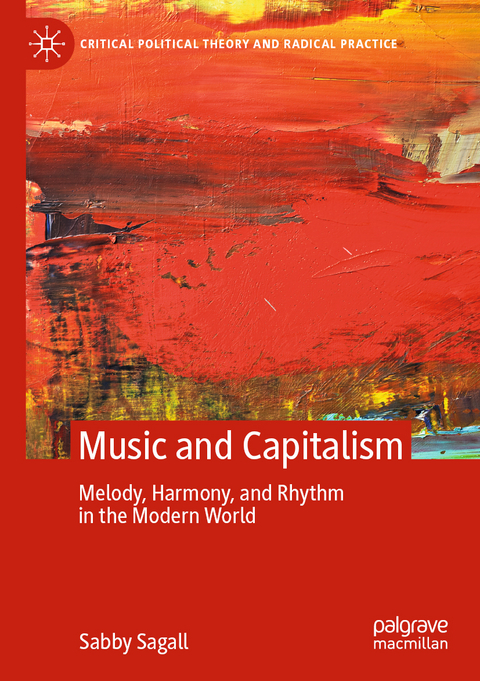
MUSIC and CAPITALISM
Melody, Harmony and Rhythm in the Modern World
Seiten
2022
|
2021 ed.
Palgrave Macmillan (Verlag)
978-1-349-70526-9 (ISBN)
Palgrave Macmillan (Verlag)
978-1-349-70526-9 (ISBN)
This book argues that the need for music, and the ability to produce and enjoy it, is an essential element in human nature. This book analyses the stylistic changes in music from the emergence of ‘tonality’ in the late seventeenth century until the Second World War.
This book argues that the need for music, and the ability to produce and enjoy it, is an essential element in human nature. Every society in history has produced some characteristic style of music. Music, like the other arts, tells us truths about the world through its impact on our emotional life. There is a structural correspondence between society and music. The emergence of 'modern art music' and its stylistic changes since the rise of capitalist social relations reflect the development of capitalist society since the decline of European feudalism. The leading composers of the different eras expressed in music the aspirations of the dominant or aspiring social classes. Changes in musical style not only reflect but in turn help to shape changes in society. This book analyses the stylistic changes in music from the emergence of ‘tonality’ in the late seventeenth century until the Second World War.
This book argues that the need for music, and the ability to produce and enjoy it, is an essential element in human nature. Every society in history has produced some characteristic style of music. Music, like the other arts, tells us truths about the world through its impact on our emotional life. There is a structural correspondence between society and music. The emergence of 'modern art music' and its stylistic changes since the rise of capitalist social relations reflect the development of capitalist society since the decline of European feudalism. The leading composers of the different eras expressed in music the aspirations of the dominant or aspiring social classes. Changes in musical style not only reflect but in turn help to shape changes in society. This book analyses the stylistic changes in music from the emergence of ‘tonality’ in the late seventeenth century until the Second World War.
Sabby Sagall is a former Senior Lecturer in Sociology at the University of East London, UK. He writes regularly for the Socialist Review and Socialist Worker, and is the author of Final Solutions: Human Nature, Capitalism, and Genocide (2013).
1. The Necessity of Music.- 2. The Late Baroque Style.- 3. The Classical Style.- 4. The Romantic Style.- 5. The Modernist Style.
| Erscheinungsdatum | 30.09.2022 |
|---|---|
| Reihe/Serie | Critical Political Theory and Radical Practice |
| Zusatzinfo | 1 Illustrations, black and white; XIII, 359 p. 1 illus. |
| Verlagsort | Basingstoke |
| Sprache | englisch |
| Maße | 148 x 210 mm |
| Themenwelt | Kunst / Musik / Theater ► Musik |
| Sozialwissenschaften ► Politik / Verwaltung ► Allgemeines / Lexika | |
| Sozialwissenschaften ► Politik / Verwaltung ► Politische Systeme | |
| Sozialwissenschaften ► Politik / Verwaltung ► Politische Theorie | |
| Schlagworte | ART • baroque • Beethoven • Bourgeois • Brecht • Capitalism • Capitalist society • Classical • Fischer • Harmony • human expression • Melody • modernist • music • musical education • Musical Production • productive labour • Rhythm • Romantic |
| ISBN-10 | 1-349-70526-8 / 1349705268 |
| ISBN-13 | 978-1-349-70526-9 / 9781349705269 |
| Zustand | Neuware |
| Haben Sie eine Frage zum Produkt? |
Mehr entdecken
aus dem Bereich
aus dem Bereich
ein Leitfaden für das politische Überleben
Buch | Softcover (2024)
Nomos (Verlag)
CHF 39,95


